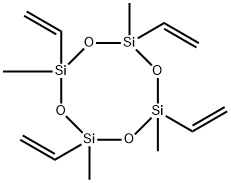
2,4,6,8-Tetravinyl-2,4,6,8-tetramethylcyclotetrasiloxane synthesis
- Product Name:2,4,6,8-Tetravinyl-2,4,6,8-tetramethylcyclotetrasiloxane
- CAS Number:2554-06-5
- Molecular formula:C12H24O4Si4
- Molecular Weight:344.66
Yield:-
Reaction Conditions:
with 18-crown-6 ether;water at 20; for 0.5 h;Overall yield = 90.1 %;
Steps:
11
General procedure: Hydrolysis of alkylchlorosilanes in a solution with a thermometer, a constant pressure dropping funnel and a reflux condenser, Gas) in a 500 ml three-necked flask. 95 g of methyldichlorosilane was uniformly dropped into a three-necked flask containing 95 g of water and 95 g of 6-crown-2 under magnetic stirring. The reaction temperature was controlled at below 20 °C, and the reaction was continued at the same temperature for 0.5 hour after the dropwise addition, and then the reaction solution was transferred to a separatory funnel to allow the solution to stand. The supernatant was subjected to vacuum distillation, get trimethylcyclotrisiloxane (D3H), tetramethylcyclotetrasiloxane (D4H), pentamethylcyclopentasiloxane (D5H), hexamethylcyclohexasiloxane (D6H). The contents of each component were analyzed by gas chromatograph. The results are shown in Table 1. The residual residue and the linear polysiloxane are regenerated under reduced pressure by acid or base, and then returned to the hydrolyzed oil to be re-rectified. The stratified layer of liquid is mainly crown ether and excess water. Can be used for hydrolysis of methyldichlorosilane continue to use. Such as lack of water, can add water. Such as strong acidity, alkali can be used after the use. The separated lower layer of liquid can also be cooled to a certain temperature, the crown ether precipitation, to achieve the purpose of recovery. Add 50 g of 6-crown-2 and 50 g of distilled water to a thermometer, constant pressure dropping funnel and reflux condenser, The HCl gas was passed into a 250 ml three-necked flask, and 50 g of methylvinyldichlorosilane was uniformly dropped into a three-necked flask from a constant pressure dropping funnel under magnetic stirring. The temperature was controlled below 20 °C, and the same procedure as in Example 1. trimethyltrivinylcyclotrisiloxane (D3Vi), tetramethyltetravinylcyclotetrasiloxane (D4Vi), pentamethylpentavinylcyclopentasiloxane (D5Vi), hexamethylhexavinylcyclotetrasiloxane (D6Vi). The contents of each component were analyzed by gas chromatograph. The results are shown in Table 2. The layered lower layer of liquid is mainly solvent and excess water, for methylvinyldichlorosilane hydrolysis continue to use. The solvent in Example 7 was changed to 18-crown-6 and 35 g of 18-crown-6 was dissolved in 50 g of distilled water. 50 g of methylvinyl dichlorosilane was uniformly added dropwise to the three-necked flask under magnetic stirring, the other was the same as Example 7 and Example 1, and the results are shown in Table 2.
References:
CN104292253,2016,B Location in patent:Paragraph 0019; 0033; 0040; 0041; 0045

124-70-9
217 suppliers
$13.00/25g

2554-06-5
257 suppliers
$5.00/10g
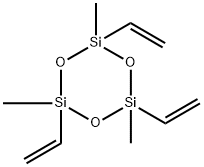
3901-77-7
127 suppliers
$28.00/5G
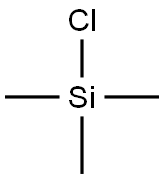
75-77-4
575 suppliers
$5.04/10

124-70-9
217 suppliers
$13.00/25g

2554-06-5
257 suppliers
$5.00/10g

3901-77-7
127 suppliers
$28.00/5G
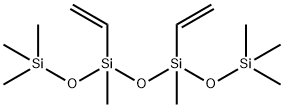
16522-66-0
0 suppliers
inquiry

16545-47-4
0 suppliers
inquiry

75-77-4
575 suppliers
$5.04/10

124-70-9
217 suppliers
$13.00/25g

2554-06-5
257 suppliers
$5.00/10g

3901-77-7
127 suppliers
$28.00/5G

16522-66-0
0 suppliers
inquiry

34372-23-1
0 suppliers
inquiry

124-70-9
217 suppliers
$13.00/25g

2554-06-5
257 suppliers
$5.00/10g
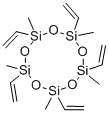
17704-22-2
35 suppliers
inquiry
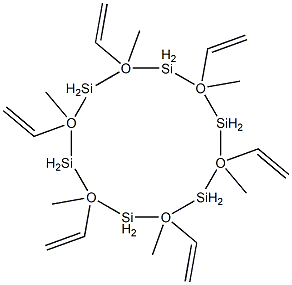
18304-82-0
8 suppliers
inquiry

3901-77-7
127 suppliers
$28.00/5G